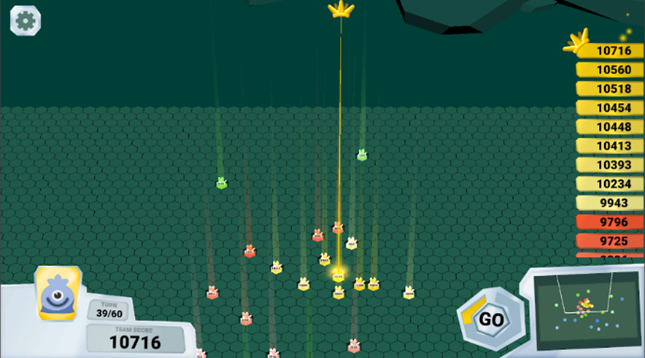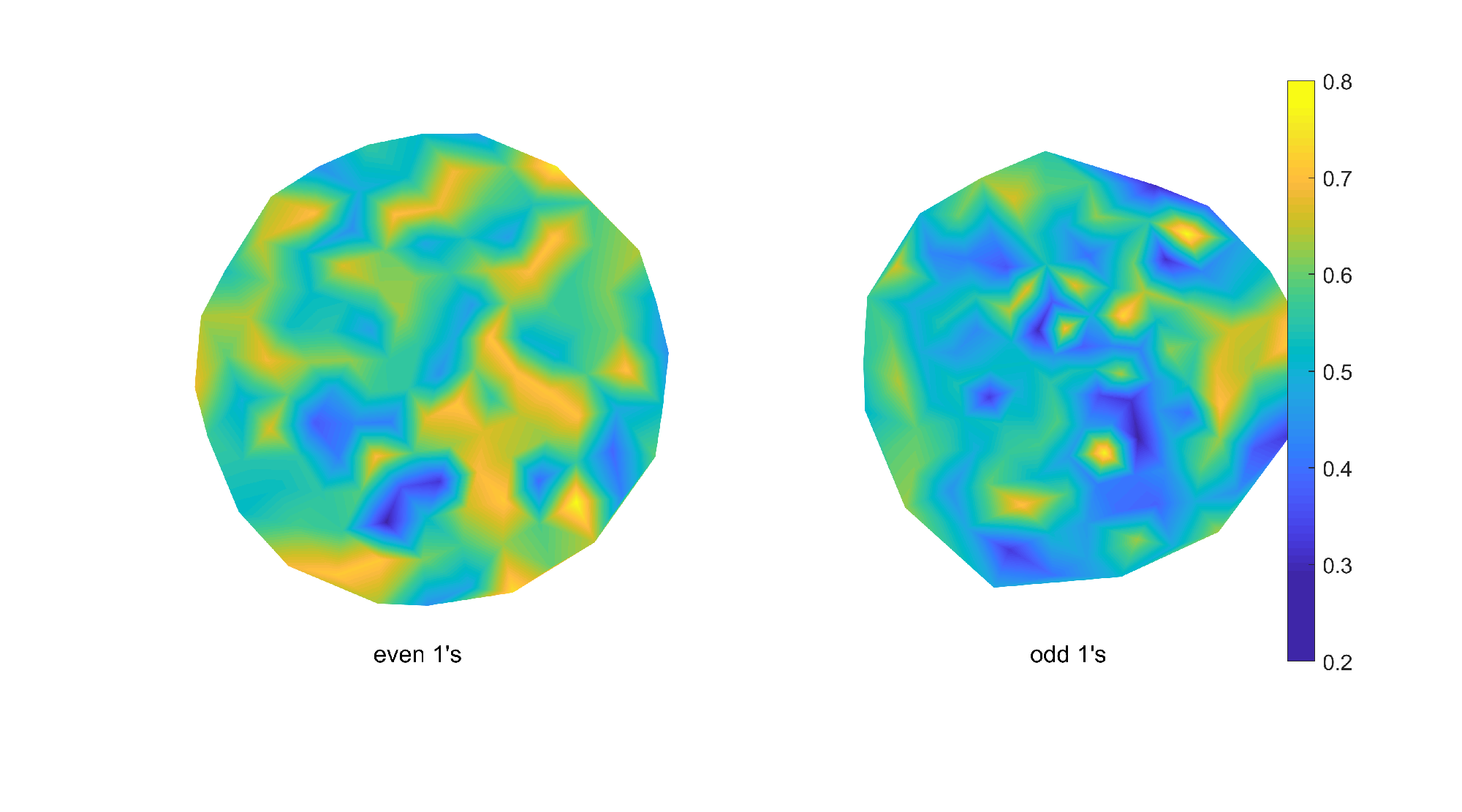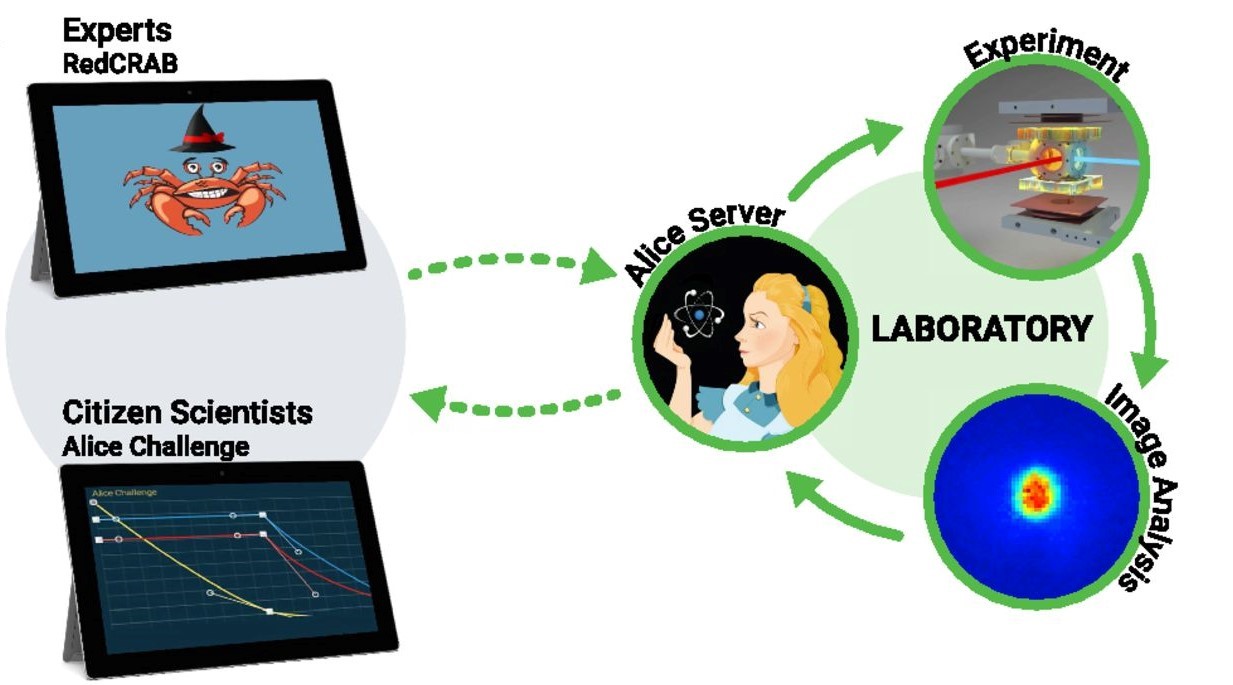I am a PhD student at the Department of Business Development and Technology at Aarhus University. In my research, I use gamified experiments and computer simulations to study human strategies for problem-solving, and how these can influence organizational decisions and structures.
I use gamified experiments and computer simulations to study human strategies for problem-solving, and how these can influence organizational decisions and structures. Of particular interest, is how the search strategies of individuals and groups differ, and how the different strategies interact with the complexity of a problem to determine the performance outcomes. Understanding these relationships in a controlled environment could be relevant for the design of organizational strategies and structures, as individuals can serve as a model for centralized organizations, while groups can model more decentralized structures.
To test the underlying mechanisms I have designed a series of experiments with the game Crystal Crop Fever. The game has been developed such that it can be used to perform both traditional laboratory experiments and open citizen science experiments with a broader and more diverse participant pool. I have initially compared the problem-solving strategy and performance between individuals and groups across the complexity of the problem
I have previsously worked as a Data Scientist at the Center for Hybrid Intelligence at Aarhus University. At the centre, I worked on how to transform research questions into citizen science games that could involve the general population conducting science. An example of one of these games, is Skill Lab that was developed to measure cognitive abilities.
Organizational search refers to the process of seeking and acquiring new knowledge and resources to improve the efficiency and effectiveness of an organization.
Gamified experiments offer a fun and engaging approach to gathering valuable data and insights into human behavior.
Prior experience as a data scientist have given me extensive knowledge of various quantitiative and statistical methods.
Computational modelling offers a unique approach to understand and develop organizational theories.

Comparing the search behavior of individuals and groups has so far yielded conflicting results, both finding that groups are more exploitative as well as more explorative than individuals. Such divergent findings could be related to the search processes of groups, both entailing the opportunity to imitate the behavior of others yet also allowing a diversity of approaches to unfold since particular designs of group interaction could shape... Read More

Computational modeling is widely used to study how humans and organizations search and solve problems in fields such as economics, management, cultural evolution, and computer science. We argue that current computational modeling research on human problem-solving needs to address several fundamental issues in order to generate more meaningful and falsifiable contributions. Based on comparative simulations and a new type of visualization... Read More

We introduce a remote interface to control and optimize the experimental production of Bose–Einstein condensates (BECs) and find improved solutions using two distinct implementations. First, a team of theoreticians used a remote version of their dressed chopped random basis optimization algorithm (RedCRAB), and second, a gamified interface allowed 600 citizen scientists from around the world to participate in real-time optimization... Read More
M. K. Pedersen, O. Vuculescu, J. F. Sherson, C. Bergenholtz
Help – I need somebody? Comparing groups’ and individuals’ search behavior across problem complexity
Academy of Management Proceedings 2023 1, 16747, https://doi.org/10.5465/AMPROC.2023.191bp
S. Nørskov, O. S. Quick, M. K. Pedersen, M. F. Damholdt, C. Vestergaard, R. C. Goduscheit, and J. Seibt
Robotic Facilitation and Affective Shifts in Group Creativity
M. K. Pedersen, O. Vuculescu, J. F. Sherson, C. Bergenholtz
Social Learning from AI Search Strategies
M. K. Pedersen, C. M. C. Díaz, Q. J. Wang M. A. Alba-Marrugo, A. Amidi, R. V. Basaiawmoit, C. Bergenholtz, M. H. Christiansen, M. Gajdacz, R. Hertwig, B. Ishkhanyan, K. Klyver, N. Ladegaard, K. Mathiasen, C. Parsons, M. B. Petersen, J. Rafner, A. R. Villadsen, M. Wallentin, B. Zana and J. F. Sherson
Measuring Cognitive Abilities in the Wild: Validating a Population-scale Game-Based Cognitive Assessment,
Cognitive Science 47 (6), e13308, https://doi.org/10.1111/cogs.13308
O. Vuculescu, M. K. Pedersen, C. Bergenholtz, J. F. Sherson
Human Search in a fitness landscape: How to assess the difficulty of a search problem,
Complexity 2020, 7802169 (2020), doi.org/10.1155/2020/7802169
R. Heck, O. Vuculescu, J. J. Sørensen, J. Zoller, M. G. Andreasen, M. G. Bason, P. Ejlertsen, O. Elíasson, P. Haikka, J. S. Laustsen, L. L. Nielsen, A. Mao, R. Müller, M. Napolitano, M. K. Pedersen, A. R. Thorsen, C. Bergenholtz, T. Calarco, S. Montangero, J. F. Sherson
Do physicists stop searches too early? A remote-science, optimization landscape investigation,
Proceedings of the National Academy of Sciences 115 (48), E11231-E11237 (2018), doi.org/10.1073/pnas.1716869115
M. K. Pedersen, N. R. Rasmussen, J. F. Sherson, R. V. Basaiawmoit
Leaderboard Effects on Player Performance in a Citizen Science Game,
Proceedings of the 11th European Conference on Game Based Learning, 431 (2017), arxiv.org/abs/1707.03704
M. K. Pedersen, C. C. Borre, A. Lieberoth, and J. Sherson
Knowledge Formation and Inter-Game Transfer With Classical and Quantum Physics,
Proceedings of The 10th European Conference on Game Based Learning, 1010 (2016), arxiv.org/abs/1608.07391
M. K. Pedersen, A. Svenningsen, N. B. Dohn, A. Lieberoth, and J. Sherson
DiffGame: Game-based mathematics learning for physics,
Procedia - Social and Behavioral Sciences 228, 316-322 (2016), arxiv.org/abs/1601.08016
M. K. Pedersen, B. Skyum, R. Heck, R. Müller, M. Bason, A. Lieberoth, and J. Sherson
Virtual Learning Environment for Interactive Engagement with Advanced Quantum Mechanics,
Physical Review Physics Education Research 12, 013102 (2016), doi.org/10.1103/PhysRevPhysEducRes.12.013102
A. Lieberoth, M.K. Pedersen, and J. Sherson
Play or science?: a study of learning and framing in crowdscience games,
World Conference on E-Learning in Corporate, Government, Healthcare, and Higher Education 2014, 218 (2014),arxiv.org/abs/1510.06841
O.E. Bjælde, M.K. Pedersen, and J. Sherson
Gamification of Quantum Mechanics Teaching,
Well Played Journal 4 (2), 30 (2015), arxiv.org/abs/1506.08128
A. Lieberoth, M.K. Pedersen, A.C. Marin, T. Planke, and J. Sherson
Getting humans to do quantum optimization: user acquisition, engagement and early results from the citizen cyberscience game Quantum Moves,
Human Computation 1 (2), 219 (2014), doi.org/10.15346/hc.v1i2.11
M.K. Pedersen, J.J.W.H. Sørensen, M.C. Tichy, and J.F. Sherson
Many-body state engineering using measurements and fixed unitary dynamics,
New Journal of Physics 16 (11), 113038 (2014), dx.doi.org/10.1088/1367-2630/16/11/113038
M.C. Tichy, M.K. Pedersen, K. Mølmer, and J.F. Sherson
Nonadiabatic quantum state control of many bosons in few wells,
Physical Review A 87 (6), 063422 (2013), doi.org/10.1103/PhysRevA.87.063422